interview by Michael McCarthy
I first became aware of Kele Okereke when I read about Bloc Party, the band he’s fronted for roughly a dozen years now, in the British magazine Q in 2005. Immediately after reading about them, I hunted down their debut album, Silent Alarm, and knew I liked it before Kele even started singing, just from the opening guitar chords. But once he did start singing, I was completely blown away. Something about his voice was fresh and invigorating. I knew I was going to be a fan of his for life. Since then Bloc Party has since released four more studio albums and a handful of EPs and sessions. Meanwhile, Kele has released a handful of solo albums and EPs with his third full-length, Fatherland, out today on Friday, October 6th. To say he’s prolific would be an understatement and I had a lot of questions for him accordingly. In the following interview, we chat about Fatherland, songwriting, touring, Elliott Smith, Bret Easton Ellis and more. So, give the new tunes a listen below and get to know their extremely talented creator.
MM: Musically, your new album Fatherland is pretty mellow. Were you going through a particularly peaceful period in your life when you were writing it?
KO: Let me see. I started writing the record in 2016, and it was still just as turbulent, I think, but I feel that with this album it was more that with my last two solo records, I enjoyed making them, and I enjoyed performing them, but I knew that I was spending a lot of times in clubs, and I knew that it was time for me to get away from the dancefloor. That’s probably where the first kernel for the record came from. This sense of wanting to explore a different kind of sonic space.
MM: How do you usually begin the writing process and did it vary with this album?
KO: Usually, with previous records, I usually start making some pretty rudimentary beats. Just, you know, add some minimal instrumentation and then kind of build stuff up from there. With this album, Fatherland, it was a very different process. I was very fascinated by my acoustic guitar, which I never really composed on. Usually, I write on an electric guitar. This time, as I was using the acoustic guitar, I got really into the idea of crafting a song with chords and melodies. Writing the whole thing, as opposed to going in and making a beat and seeing what happened. It was a very different process this time.
MM: What do you usually use for making beats when you write?
KO: Well, I usually use an engineer, who uses Logic and uses Logic to do the basic sort of stuff.
MM: Did you write all of the songs on the new album alone or did you co-write any, like the duets?
KO: Well, I wrote all the songs myself. I wrote all the music, but the duets I wrote what I sang whereas my duet partners wrote what they sang. So, it was nice. I think it’s always better that way so then your partner is giving something of themselves through the song as well. I think it feels better that way.
MM: I was reading an interview with Death From Above and one of the guys was talking about how they felt like the band was this separate entity they had to live up to, almost like it was this thing that existed independent of them. Is that something you’ve ever experienced with Bloc Party?
KO: No, if I’m honest, I’ve never been so concerned with how people perceive us. I’ve never been that bothered about that sort of thing. Because I’ve always understood that that sort of thing is quite transient. It’s always been more important for me to express myself than to feel like I’m doing what I need to do rather than what I ought to do. If that makes sense.
MM: Sure. It makes sense. So, who performed the horns on the new album?
KO: Well, we had lots of different players coming in. Lots of different session musicians coming in when we were recording the album. If I can remember, all the horn players were separate people who didn’t really know each other. But they really gelled really well when it came to playing the music together. I think two of them knew each other quite well and they pulled in other people for the session. But they were just these fantastic players. All the string players and the percussionists and the horn players were from Portland and the Portland music scene. It’s funny, with this album I’ve worked with the largest number of musicians I’ve ever worked with for any record. There were like 30 different people over the course of the album. So, it was definitely fun making it. It was a lot of careful coordination to make sure everybody was at the right place at the right time.
MM: From when to when was the album recorded?
KO: It was recorded in Portland in the summer of 2016. So, basically, a year ago I recorded it.
MM: Were the horns always in your vision when you were writing the songs or were they more of an afterthought?
KO: Let me think… The initial idea for the album was – do you know the music of Elliott Smith?
MM: Yes. I really like him.
KO: There was an album of his called Either/Or, which is all kind of his acoustic guitar and his voice. And that was the plan. To write something completely stripped back. Initially. But then I started working on songs and I started working with the producer, Justin Harris, and the vision started getting bigger and bigger. With Bloc Party, I think we used horns on one song, “Mercury,” but we were always quite reluctant to bring in other musicians. But with this album I felt like if I was ever going to do something that had a semi orchestral feel now was the time to do it. I knew, as I started writing more material, that I wanted it to have more of a widescreen, technicolor sound. So, yeah, horns and strings and choirs – they were all part of the vision.
MM: I know that “Yemaya” is about the sea goddess of the same name. What inspired you to write about her? It made me think of The Odyssey by Homer.
KO: [Laughs] Wow. Well, as well as being a sea goddess, Yemaya is a deity in charge of fertility and pregnant women and when I knew that I was having a baby in 2016 this fertility goddess figure started to appear a lot in my thoughts and in my dreams and I think that’s really where the song came from. Wanting to connect to this idea of life and water and femininity.
MM: On “Streets Been Talking” you mention a TTBM tattoo. Is that referring to the French slang phrase “très très bien monté”?
KO: Très très bien? I don’t know what that slang is. The line is a DTPM, which is a club – it was like a club in London in the ’90’s, like a gay dance club, basically. And it refers to the logo of the club that is tattooed on someone’s skin. So, I don’t know what TTBM means.
MM: Well, it’s a slang term typically used in the gay community in France to refer to a guy with a big male organ.
KO: [Laughs] Oh, wow! I never heard that before. I’ll use that in my next song. [Both laugh]
MM: You also mention a Johnny Saint James. Is that someone you knew personally or are you referring to the famous seminary student who lost his wife to a drunk driver? Or there’s also a professional wrestler by that name.
KO: No, sadly, it was really just that I’ve always liked names that have a saint in them. Like Tyler Saint Somebody. It just looks good on the page. And it sounds good to sing. So, yeah, it wasn’t a real person. It was more of an idea of this socialite, this party boy, leaving the country on the last plane.
MM: Do you generally prefer making albums or performing live?
KO: To be honest, I actually prefer making music to performing live. I mean, I love playing live. When it’s going well, it’s the best feeling in the entire world. But I just think there’s something completely magical about recording songs and just pulling ideas out of the air in the studio and seeing where they go. That seems like the real alchemy. The real magical part of music. Just being in the studio and having these crazy, spontaneous sparks of creativity and then committing it to tape. Committing it to the computer. And then it being there forever, potentially. Being this thing that you make can then go on and change the world. Or it can certainly go on and live on after you are dead and gone. My music will always still be there. People will always be able to hear my voice. And hear my soul. So, yeah, I definitely love the process of being in the studio. I feel very blessed that I’ve had the opportunity to make records. It really is a blessing.
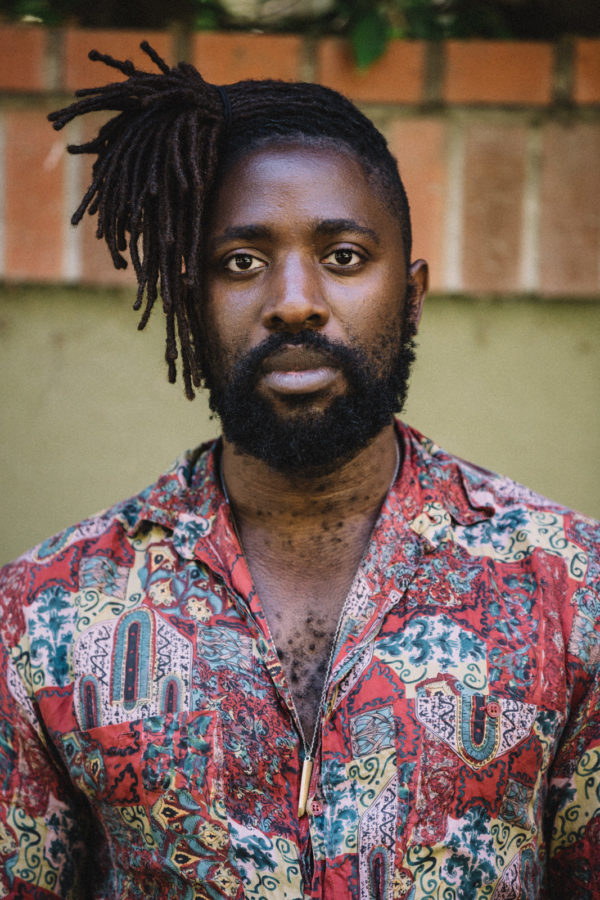
MM: Was knowing that you were going to be a father why you called the album Fatherland?
KO: Yeah, I think that was part of it. I think another part of it was that I went to Nigeria with my Dad last year to visit my grandmother and the place is really, technically my home. It’s where my parents were born and it’s where my family and my ancestors are from. It’s my Fatherland. This act of going to Nigeria, it just seemed like a very prescient title. It seemed to work on lots of different levels.
MM: I’m a huge fan of Bret Easton Ellis, so I was a big fan of “Song For Clay.” Are you a big fan of Bret Easton Ellis or was it just the book Less Than Zero in particular that you were fond of?
KO: No, I am a big fan of his writing. I feel like he’s one of the only authors that I feel like I’ve read all of the novels that he’s written. Glamorama, Less Than Zero, American Psycho, Lunar Park, Imperial Bedrooms… There was a period where I was very kind of egregiously trying to devour as many of his books as possible. I mean, I don’t know, I know that people are quite quick to call [the appeal] his writing style. Some things are quite literal and visual. Without saying it’s too specific with its intentional pop cultural references. I’ve always liked that. That he uses the kind of language and idiom of the time. And I think that helps to perfectly document where his books are supposed to be set. I’m still a fan. I haven’t thought about him much, to be honest, recently.
MM: He’s due to put out a new novel. What’s your favorite one of his books?
KO: What’s my favorite? My favorite Bret Easton Ellis books is… Probably The Rules of Attraction.
MM: That’s cool. I think mine is Glamorama.
KO: Yeah, Glamorama was one of the first books of his that I read. And I just didn’t get it. I didn’t get that it suddenly became a reality show halfway through. It was only subsequently re-reading it ten years later that I realized how smart it was. His eyes and his ears [regarding] cultural references are second to none, really. I felt kind of stupid when I read it a second time. Sometimes that happens. You don’t get something the first time. You need to keep coming back to it. To see the beauty in it.
MM: I remember reading it and wondering if the characters were making a movie or if they were terrorists blowing things up and really wondering.
KO: Yes. And I don’t know how much reality television you watch now, but so many shows have that format of reality television. And I feel like Glamorama was really ahead of its time.
MM: Can you give me any other examples where author’s books have inspired songs you’ve written?
KO: Songs I’ve written? I don’t want to get in trouble. I do it all the time. I’m constantly stealing stuff. I guess there was a line from a James Baldwin book, Another Country, that I used on a song for our second record, A Weekend in the City. What was the song? “Where is Home?” Yeah, there was a line I stole from James Baldwin that no one seemed to notice. Now I’m probably gonna get in trouble because I told you. [Laughs]
MM: So, do you have any plans to tour behind the new album?
KO: Yeah, I’m doing a bunch of shows in the U.K. in October around the release and then I guess I’ll be doing shows next year. I’m slightly nervous about the idea of touring, being away from my daughter for a period of time. So, I don’t know what I really want to do. It’s gonna have to be a case of just balancing out what I need to do versus what I want to do. We’re gonna see.
MM: Have you done much performing in the States over the years?
KO: Yeah, I feel like every time Bloc Party has released an album we’ve been to the States. Three or four times. I do enjoy touring the States. I feel like America has been created to be driven around with the long kind of motorways. Every single album I’ve ever done, I’ve come to the states at least three or four times. On one hand, I love it. On the other hand, it’s always the hardest tours because you’re so far away from home and you’re usually away for a lot longer. So, that’s when the wheels can start to come off. You can start going a little bit crazy. So, it’s always kind of bittersweet touring the States for me.
MM: I imagine you must have to play smaller venues here than you’re able to back home.
KO: Yeah, but I don’t mind that. It’s when you go and do those shows and you’re playing to people and you can see how much it means to them for you to be there that’s always a nice feeling. I think playing New York and L.A is fine, but it’s the secondary market that really feels, to me, like you’re touring America. When you’re playing Ohio or something. Or Cleveland. That’s when you’re really touring America. And I think it’s important to see. I feel very blessed that in my job I’ve been able to travel the world and be treated nicely wherever I go. I get to see places that I would never, ever see. I never take it for granted.
MM: We’re based out of the Boston area. Do you have any particular Boston memories you could share with us?
KO: Whenever we play in Boston we usually play at the House of Blues, which is right by – is it the Red Sox stadium?
MM: Yes, that’s right next to there.
KO: Do I have any Boston memories? I must say that I don’t, really. I remember once walking around Boston with a friend of mine from New York who used to live in Boston and he told me lots of horrible stories about it. So, I don’t have so many fond memories of hanging out in Boston, sadly.
MM: Do you think the way that England perceives the United States has changed much since Trump became President? Because I remember people here poking fun at England over the Brexit thing.
KO: Were they really?
MM: A little bit.
KO: I think Trump’s election has people across the world looking at America and saying, is this for real? I don’t just think in England. I think globally a lot of people are scratching their heads and they can’t really believe it. So, yeah, I don’t think it’s just Britain or England.
RANDOM QUESTIONS:
MM: What was the last album you bought and what format was it?
KO: The last album I bought with my own money was Vulnicura by Bjork. I bought it on iTunes. I don’t ever really buy music anymore. I never use iTunes. So, it was kind of a big deal. I had to go in and log all my card details and stuff. But, yeah, for some reason I don’t usually buy music. I usually get things given to me.
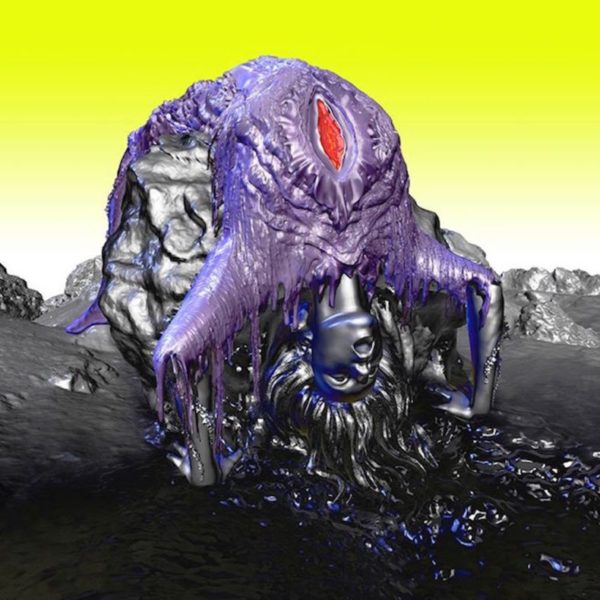
MM: Do you use streaming services at all?
KO: No, I’m not on Spotify. I’m not on anything like that. There’s something, for me, about actually owning the music or having it in my possession – so it’s not something that I stream – I understand streaming and my partner uses it, but from what he’s told me it’s like a playlist of stuff and from using things like Spotify they suggest other types of music for you to like, which, to me, sounds incredibly frightening. Some kind of computer will be deciding your personal tastes, whereas when I was a young person you went out to find things that you liked or your friend recommended it to you. The idea that it’s just a computer algorithm telling you what to like isn’t a healthy one. I don’t use streaming services.
MM: I remember going into the record stores on new release day and picking out a few things based on song titles and covers and stuff. That was definitely more exciting.
KO: I guess it was a different time.
MM: Now the music industry doesn’t seem to know what to do with itself.
KO: Yes, yes. I don’t know. I think my relationship with consuming music has probably changed since making music has become my job. It’s certainly in a different place in my heart. It’s something I’m passionate about, but it’s my job. Sometimes I need to be away from it to appreciate it, if that makes sense.
MM: If you could resurrect any one musician from the dead, who would you bring back?
KO: I’d bring back Prince. I think what he made and his vision and his effect with his music – there’s never gonna be another musician who’s also a virtuoso and performer like him. He had such a specific world that everyone understood just by looking at him. He carved the world in his image. I think he’s someone I’d like to bring back. He really had magic inside of him.
MM: What song is stuck in your head right now besides your own?
KO: “Tomorrow Never Knows” by The Beatles. I’ve been listening to it a lot today. For various reasons.
MM: What’s the most useful piece of advice you’ve ever been given and who gave it to you?
KO: The most useful piece of advice that I’ve ever been given was to make sure you put any money that you earn into property, which I was told by lots of people as soon as I started entering into the music business. And it’s something that I’m glad that I did. It’s afford me a lot of freedom financially. I don’t answer to anyone. I’m self-made. And because of that I feel like my music is allowed to be honest. Because of that I don’t have to appeal to people. The only pressure that I have is the pressure that I put on myself. I express myself authentically. I feel like that’s something that you have to preserve when you’re in this industry.
MM: Final question. If someone was giving you a million dollars to give to charity and it all had to go to the same charity or cause, which would you give it to?
KO: Well, I would give it to a charity that dealt with homeless, runaway kids. I feel like it’s something personally. I feel like there’s something so sad about a young person being forced to grow up too quickly. It must be the most frightening and devastating experience.
Order Fatherland today: http://www.iamkele.com
Special thanks to Kele for taking the time to do this interview and to Jen Appel and Maddy Weigel for setting it up!

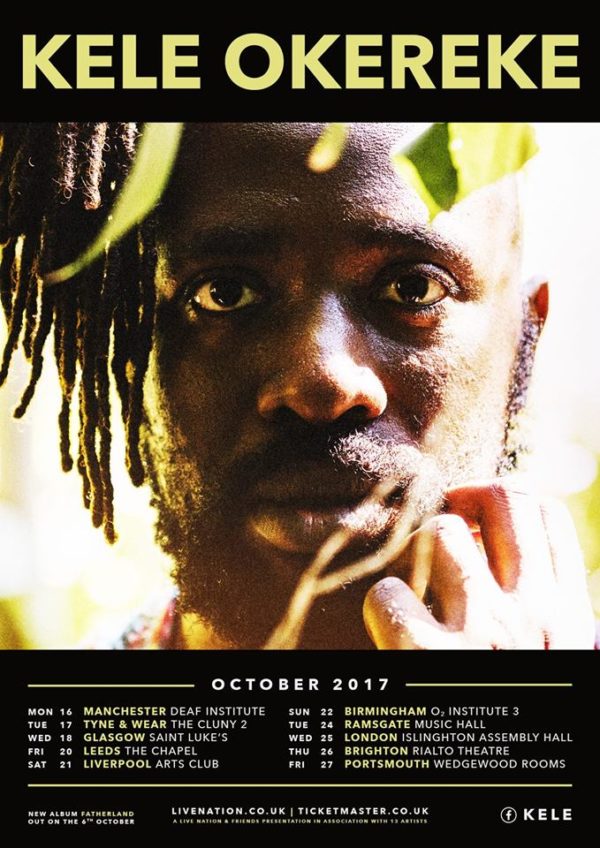
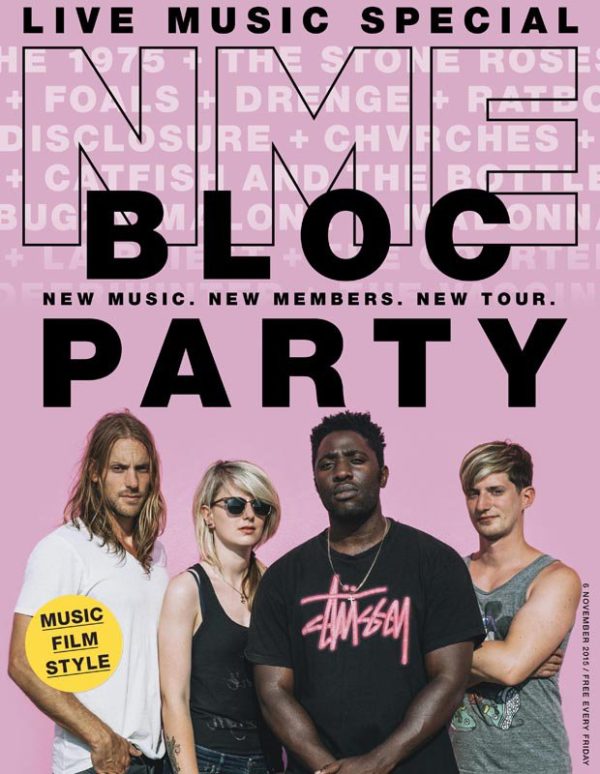
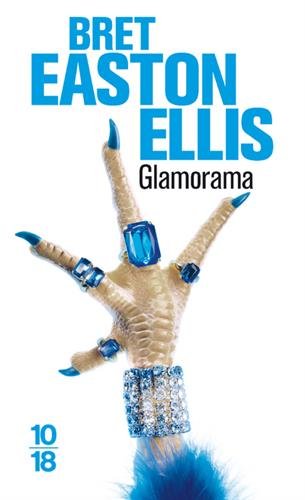

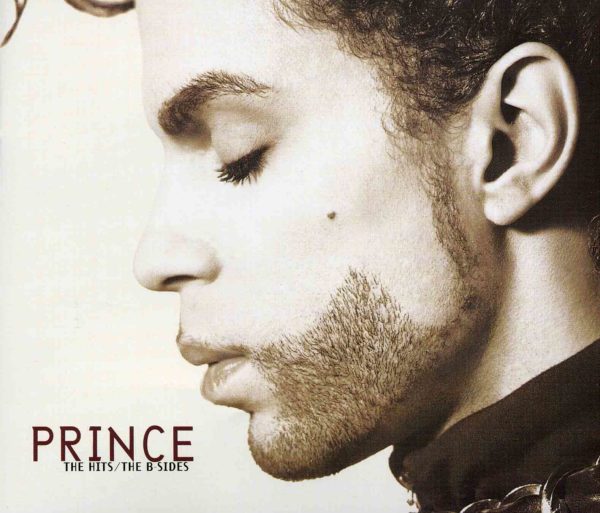
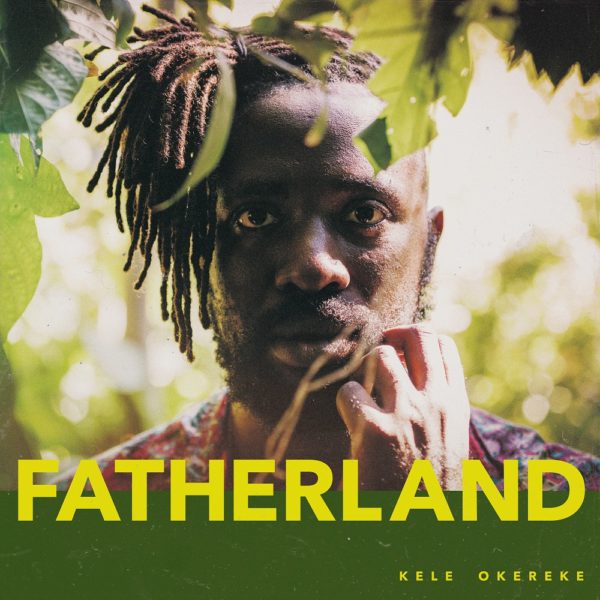
Leave a Reply